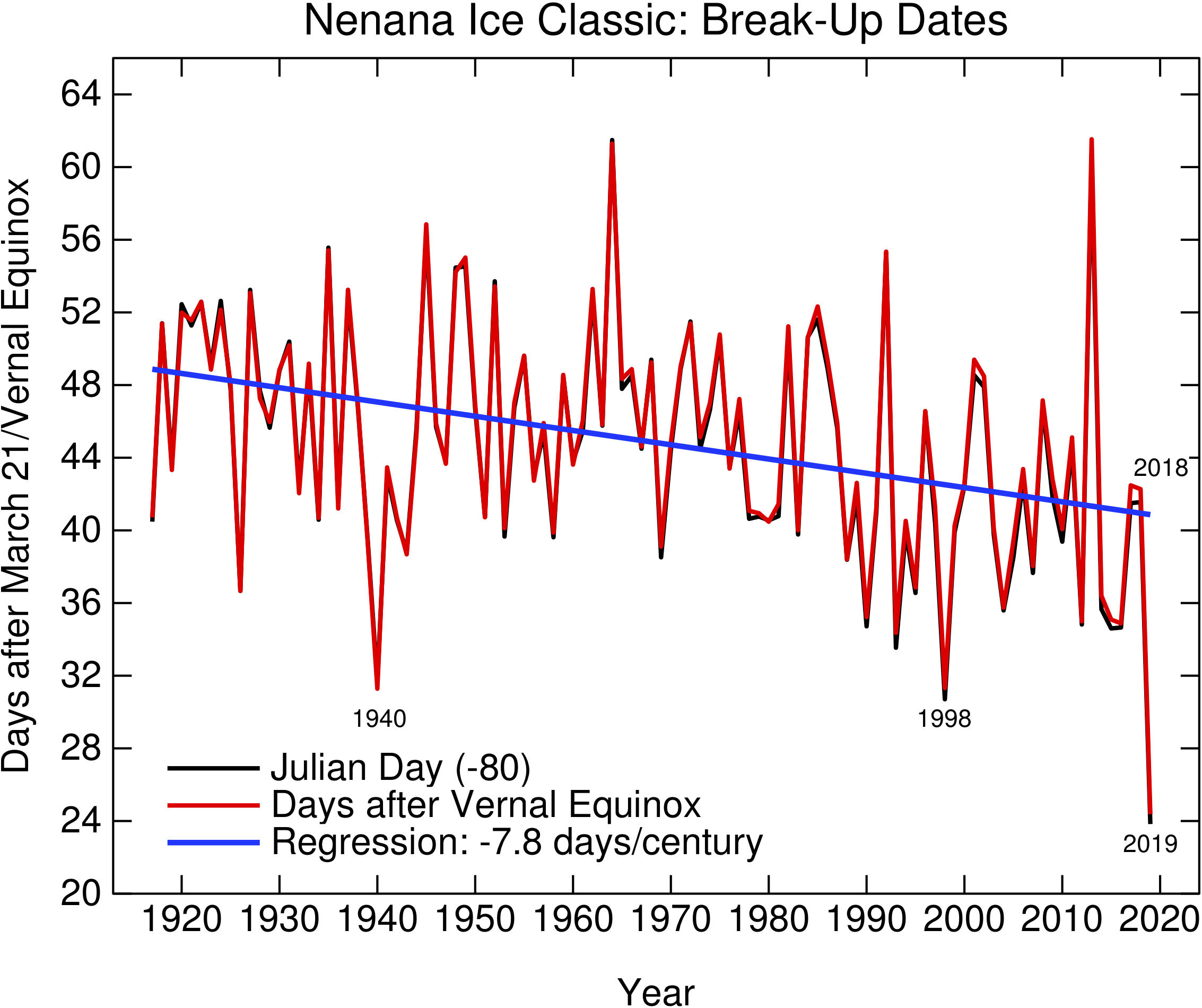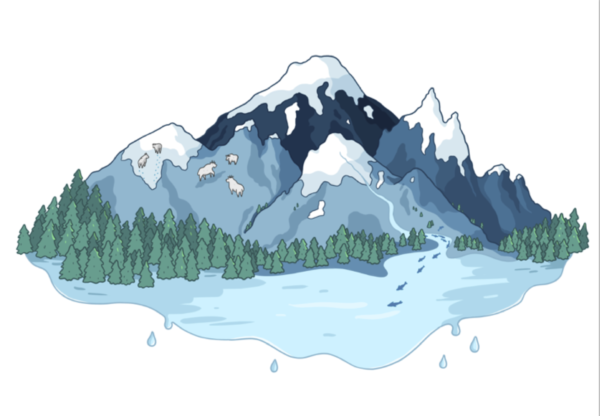This month’s open thread for climate science discussions. Remember discussion about climate solutions can be found here.
Blog – realclimate.org – All Posts
Forced responses: May 2019
A bimonthly open thread on climate solutions and policies. If you want to discuss climate science, please use the Unforced Variations thread instead.
Unforced variations: May 2019
This month’s open thread about climate science topics. For discussions about solutions and policy, please use the Forced Responses open thread.
Nenana Ice Classic 2019
Wow.
Perhaps unsurprisingly given the exceptional (relative) warmth in Alaska last month and in February, the record for the Nenana Ice Classic was shattered this year.
The previous official record was associated with the exceptional conditions in El Niño-affected winter of 1939-1940, when the ice went out on April 20th 1940. Though since 1940 was a leap year, that was actually a little later (relative to the vernal equinox) than the ice out date in 1998 (which wasn’t a leap year).
Other records are also tumbling in the region, for instance the ice out data at Bethel, Alaska:
The Kuskokwim River at Bethel has gone out. This is, by far, the earliest breakup in the 90+ years of breakup data. This follows the warmest February and warmest March on record. @kuskoiceclassic @Climatologist49 @AlaskaWx pic.twitter.com/auEfe0YQ7J
— International Arctic Research Center (@IARC_Alaska) April 13, 2019
While the trend at Nenana since 1908 has been towards earlier ice-out dates (by about 7 days a century on average), the interannual variability is high. This is consistent with the winter warming in this region over that period of about 2.5ºC. Recent winters have got close (2012/14/15/16) (3 to 4 days past the record), but this year’s April 14th date is an impressive jump (and with no leap year to help calendrically).
As usual, I plot both the raw date data and the version adjusted to relative to the vernal equinox (the official time of breakup was ~12:21am).

[As usual, I predict that there will be no interest from the our favorite contrarians in this]
First successful model simulation of the past 3 million years of climate change
Guest post by Matteo Willeit, Potsdam Institute for Climate Impact Research
A new study published in Science Advances shows that the main features of natural climate variability over the last 3 million years can be reproduced with an efficient model of the Earth system.
The Quaternary is the most recent geological Period, covering the past ~2.6 million years. It is defined by the presence of glacial-interglacial cycles associated with the cyclic growth and decay of continental ice sheets in the Northern Hemisphere. Climate variations during the Quaternary are best seen in oxygen isotopes measured in deep-sea sediment cores, which represent variations in global ice volume and ocean temperature. These data show clearly that there has been a general trend towards larger ice sheets and cooler temperatures over the last 3 million years, accompanied by an increase in the amplitude of glacial-interglacial variations and a transition from mostly symmetry cycles with a periodicity of 40,000 years to strongly asymmetric 100,000-year cycles at around 1 million years ago. However, the ultimate causes of these transitions in glacial cycle dynamics remain debated.
[Read more…] about First successful model simulation of the past 3 million years of climate changeUnforced variations: April 2019
This month’s open thread on climate science issues. Remember that discussions about climate solutions go here.
Alpine glaciers: Another decade of loss
Guest Commentary by Mauri Pelto (Nichols College)
Preliminary data reported from the reference glaciers of the World Glacier Monitoring Service (WGMS) in 2018 from Argentina, Austria, China, France, Italy, Kazakhstan, Kyrgyzstan, Nepal, Norway, Russia, Sweden, Switzerland and United States indicate that 2018 will be the 30th consecutive year of significant negative annual balance (> -200mm); with a mean balance of -1247 mm for the 25 reporting reference glaciers, with only one glacier reporting a positive mass balance (WGMS, 2018).

References
The Crank Shaft
Unforced variations: Mar 2019
The best case for worst case scenarios
The “end of the world” or “good for you” are the two least likely among the spectrum of potential outcomes.
Stephen Schneider
Scientists have been looking at best, middling and worst case scenarios for anthropogenic climate change for decades. For instance, Stephen Schneider himself took a turn back in 2009. And others have postulated both far more rosy and far more catastrophic possibilities as well (with somewhat variable evidentiary bases).
[Read more…] about The best case for worst case scenariosReferences
- S. Schneider, "The worst-case scenario", Nature, vol. 458, pp. 1104-1105, 2009. http://dx.doi.org/10.1038/4581104a
